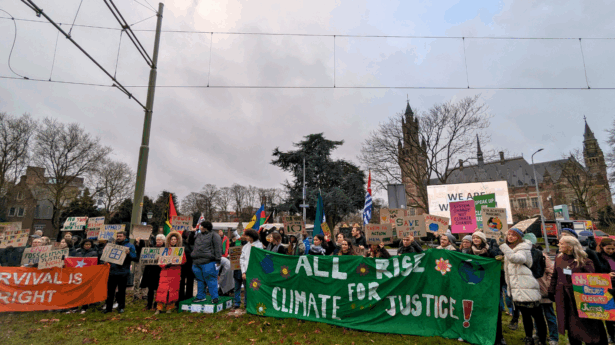The Unitarian Universalist Service Committee advances human rights through grassroots collaborations.
November 18, 2016, Rights Reading
November 18, 2016
Our weekly roundup of what we’re reading: a few select articles from the front lines of human rights that we don’t want you to miss.
“It is extremely disturbing that [Immigration and Customs Enforcement]’s concern for GEO’s property takes precedence over the well-being of the children and their mothers’ rights to legal advice.”
Karnes, a privately-owned detention center in Texas, banned the use of crayons stating it caused property damage. Barbara Hines an adjunct professor at the University of Texas and member of RAICES, which is a UUSC partner organization, stated “Treating a child’s color markings as ‘destruction of property’ is altogether inappropriate. And such markings are a cost that comes with the detention of children.”
Taking away crayons which children use for play and escape or as an outlet from their situation adds another layer of trauma that these detention center have on families, many who came here as refugees to seek asylum.
“At least 130 people have died during a military operation in Rakhine state, where many of the minority live, in just over a month.”
Hundreds of Rohingya Muslims are trying to cross over to Bangladesh because of increasing violence by the military. Some witnesses say that people escaping are being shot and killed, but Burma is not allowing any foreign journalists in to verify the situation on the ground. Rohingya Muslims, numbering around one million, are not recognized as Burma citizens and have been subject to discrimination for years.
“Zimbabwe has been hit by successive waves of unrest in recent months, prompted by a deepening economic crisis, cash shortages and persistent high unemployment. The government has been repeatedly forced to delay salary payments to teachers, doctors, soldiers and administrators. The country is also suffering a severe drought and is threatened by famine in some parts.”
This article highlights the surge of arrests of social activists before the launch of bond notes, a controversial form of payment that many fear will further damage the economy. Many professions are receiving delayed salaries and banks are capping the amount of withdrawals people can take each day. With over 94% of the entire population engaged in the informal economy, UUSC has been supporting the training of informal workers on human rights in Zimbabwe.
“When we face climate crisis and all the other inequalities in the world, this is the moment we need more global cooperation, more solidarity, more justice and more empathy.”
In this interview by Amy Goodman, Asad Rehman of Friends of the Earth International discusses the potential and likely consequences of climate change on refugees in light of a meeting between Donald Trump, the U.S. President-elect and Nigel Farage, one of the leading supporters of Brexit. Droughts and extreme weather are exacerbated by global warming. Many people are forced to leave their homes because of these environmental impacts – they can no longer grow food, natural disasters have destroyed property, etc. A perfect example of this mentioned in the above article illustrates how a severe drought has brought on famine in Zimbabwe.
The United Nations estimates that 1 out of 30 people will be climate refugees if we don’t take serious measures on climate change. This is becoming increasingly difficult as some of the nation’s top leaders, Donald Trump and Nigel Farage, are not only climate change deniers, but leaders that normalize a discourse of racism, hatred, and fear.

